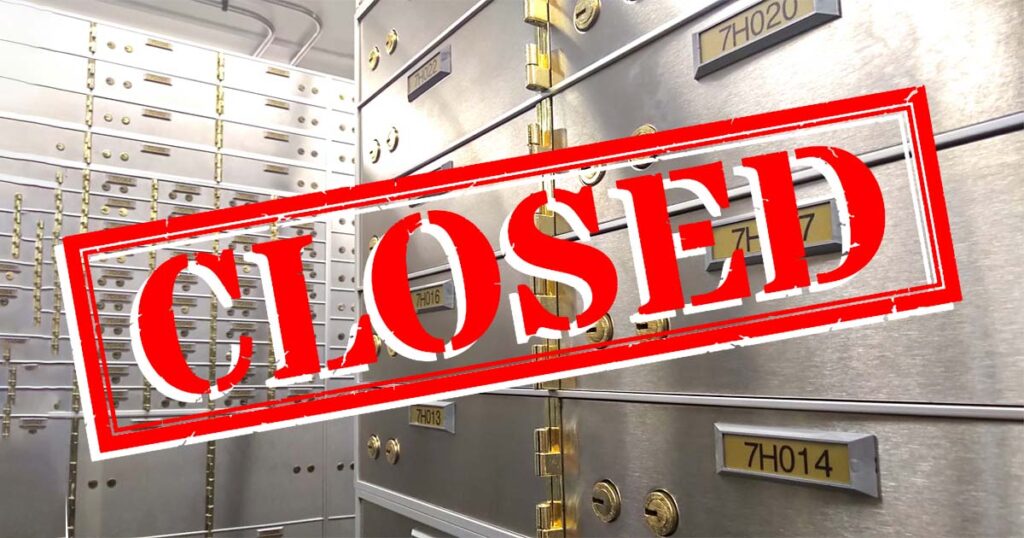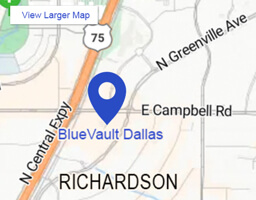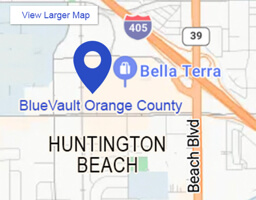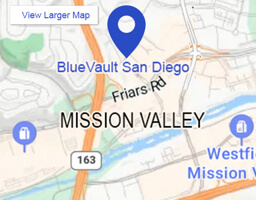
In the past decade, we’ve witnessed a seismic shift in the way people interact with their banks. Online banking—with its 24/7 availability and seamless functionality—has transformed the financial services landscape. While this evolution offers unmatched convenience, it has led to unintended consequences, including the steady decline of traditional bank branches. One notable casualty? The ubiquitous safe deposit box.
For those searching for secure storage solutions, the decline of this once-standard bank service is causing frustration. But there’s good news: private vault storage, like that offered by BlueVault, is stepping up to fill the gap, providing safer, more private, and more convenient alternatives for safeguarding your valuables.
The Decline of Traditional Bank Branches
Think back a decade, and you’d likely find a bank branch on nearly every corner. Today, that landscape has changed dramatically. According to the Federal Deposit Insurance Corporation (FDIC), the number of U.S. bank branches dropped from 92,375 in 2013 to just 72,334 in 2023—a staggering 22% decline. This contraction is driven by several factors, including the rise of digital banking.
Why visit a branch when you can deposit checks, transfer funds, or pay bills from your smartphone or computer, anytime, anywhere? Banks, too, are adjusting to the new norm, consolidating branches to cut costs and shifting resources to digital platforms. While this makes sense financially, it leaves many consumers without access to in-person services, particularly safe deposit boxes.
The Vanishing Safe Deposit Box
For decades, safe deposit boxes were synonymous with secure storage, used to keep jewelry, important documents, and family heirlooms under lock and key. However, these boxes are becoming a relic of the past. Major banks like JPMorgan Chase have stopped offering new safe deposit boxes, and some—like Santander Bank and Capital One—have exited the service entirely.
The Wall Street Journal reports that customers across the U.S. face long waitlists or outright unavailability when searching for safe deposit boxes. Even when available, the contents of these boxes aren’t insured by banks or the FDIC, leaving your valuables at risk in cases of theft, fire, or natural disaster. This is where private vault storage shines.
Why Choose Private Vault Storage?
Private vault storage isn’t just a replacement for bank safe deposit boxes—it’s an upgrade. Companies like BlueVault provide state-of-the-art facilities designed to offer the highest levels of security, convenience, and privacy – exceeding what you’ll find in most banks. Here’s why private vault storage is gaining popularity:
Enhanced Privacy and Security
When you store valuables with BlueVault, you’re entrusting them to a facility with cutting-edge security measures. Think 24/7 surveillance, biometric access controls, and reinforced vault technology. Unlike traditional bank boxes, BlueVault offers insurance, providing peace of mind that your assets are safe from the unexpected.
True Ownership and Legal Protection
At a bank, your safe deposit box is technically under shared custody. Legal disputes, unpaid debts, or even government seizures could jeopardize the contents of your box. In contrast, private vaults operate under stricter privacy protocols and are not part of the banking system. With BlueVault, you have sole access to your box—no one else, not even our staff, can access your assets.
Flexible Storage Options
Whether you’re storing a small collection of heirlooms or a substantial investment in precious metals, BlueVault offers storage options tailored to your needs. Choose from compact boxes for jewelry and documents or larger units for gold bars, coin collections, or even artwork. Best of all, you can rent a vault unit online or in person at any BlueVault location, making the process seamless and convenient.
Vault Storage Custody
BlueVault also offers vault custody storage services, specifically designed for precious metals and other high-value assets. This option ensures that your investments are securely stored in a professional facility, with proper documentation, monthly statements, and full insurance coverage. You can even purchase and liquidate precious metals by phone. Whether you’re safeguarding gold, silver, or other valuables, BlueVault provides a trusted custody solution tailored to meet your needs. Learn more about this service at BlueVault Custody Storage.
Segregated vs. Non-Segregated Storage: What’s the Difference?
If you’re an investor, particularly in precious metals, understanding storage types is critical. Here’s a quick breakdown:
- Segregated Storage: Your assets are stored separately from others’, ensuring you receive the exact items you deposited. This is ideal for collectors or investors who value item-specific integrity.
- Non-Segregated Storage: Your assets are pooled with others of the same type. While more cost-effective, this option doesn’t guarantee you’ll get back the exact items you stored.
BlueVault specializes in segregated storage, offering unparalleled peace of mind for those who value the uniqueness of their assets.
The Future of Bank Branches and Safe Deposit Boxes
As banks continue to streamline operations, the decline of safe deposit boxes is unlikely to reverse. According to industry experts, the number of safe deposit boxes in the U.S. has dropped by 20% over the past six years. For many, this trend underscores the need for more reliable storage solutions.
Moreover, banks view safe deposit boxes as low-margin services that are increasingly burdensome to maintain. As they phase out these services, the demand for private vaults is only growing. BlueVault, with its expanding presence across the U.S., is well-positioned to meet this demand.
Home Safe or Private Vault?
Some might consider a home safe as an alternative to private vault storage. While it’s a viable option for some, it comes with significant drawbacks:
- Security Risks: Home safes are vulnerable to theft, home invasion, fire, and natural disasters.
- Insurance Challenges: Insuring the contents of a home safe can be costly and complicated.
- Space Limitations: Most home safes lack the capacity for large or high-value collections.
Private vault storage eliminates these concerns. With robust security, insured facilities, and a variety of storage sizes, BlueVault ensures your valuables are protected and easily accessible.
Are Your Stored Assets Insured?
One of the biggest misconceptions about bank safe deposit boxes is that their contents are insured. The reality? They’re not. If theft, fire, or natural disaster strikes, you’re on your own. At BlueVault, all stored assets are fully insured, giving you confidence that your valuables are safeguarded.
Conclusion: Why BlueVault?
As the banking landscape evolves, private vault storage is emerging as the smarter, more secure alternative to traditional safe deposit boxes. With BlueVault, you gain access to state-of-the-art facilities, flexible storage options, and unparalleled security. Whether you’re protecting family heirlooms, precious metals, or important documents, BlueVault has you covered.
Renting vault storage has never been easier. For more information on BlueVault’s precious metals products and storage solutions, visit our website at https://www.bluevaultsecure.com/, and call or visit one of our locations in San Diego (619-342-8090), Orange County (714-485-0210), or Dallas (214-831-4750).
References
- Federal Deposit Insurance Corporation (FDIC): “Historical Bank Branch Data.”
- The Wall Street Journal: “No One Can Find Safe-Deposit Boxes Anymore” by Ben Eisen and Shara Tibken.
- Forbes: “How Online Banking is Changing the Landscape of Financial Services.”
- Bloomberg: “The Shift Toward Digital Banking and Its Impact on Traditional Branches.”
- Yahoo Finance: “Why Private Vault Storage is Becoming More Popular Than Ever.”





